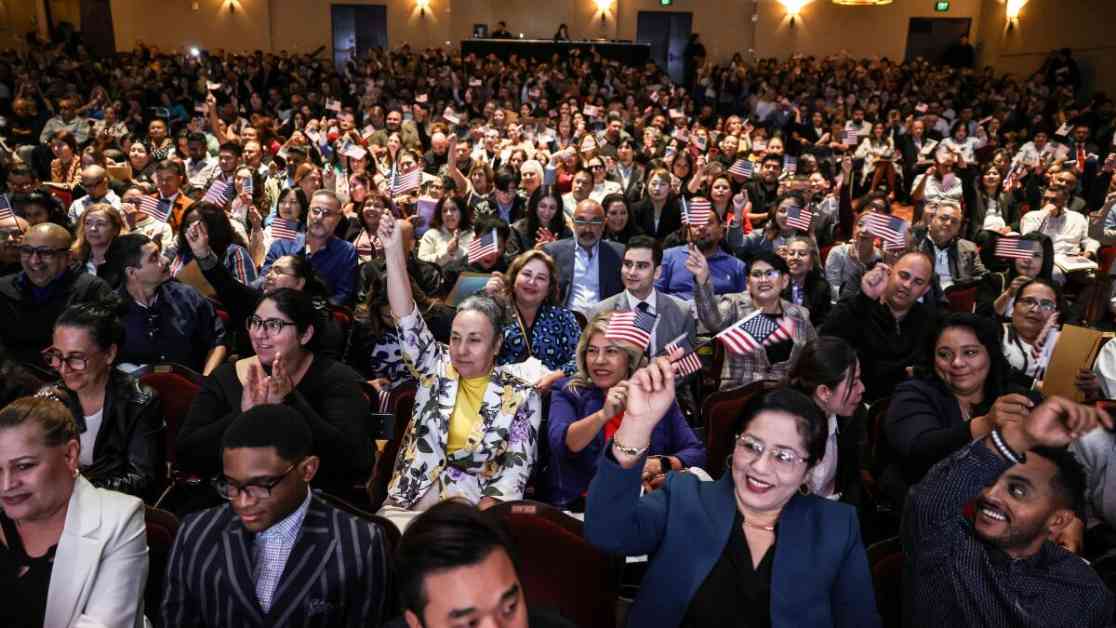Record Number of Citizenship Applications Approved Ahead of U.S. Election
The process of becoming a U.S. citizen is a significant milestone for many immigrants, symbolizing a new chapter in their lives and granting them the right to participate in the democratic process through voting. In a recent naturalization ceremony held in Riverside, California, 775 individuals from 63 countries gathered to take the oath of citizenship. With American flags adorning the stage and messages of empowerment displayed on a large screen, the event marked a celebratory moment for those who had navigated the complex journey towards citizenship.
Efforts to Reduce Backlog and Expedite Citizenship Approvals
The Biden administration has been working diligently to address the backlog of citizenship applications that accumulated during the previous administration and was exacerbated by the challenges posed by the COVID-19 pandemic. As a result, immigration authorities have been processing applications at a record speed, leading to a surge in the number of new citizens being sworn in across the country.
Naree Ketudat, a spokesperson for the Department of Homeland Security, emphasized that the timing of the increased approvals is not driven by any political agenda related to the upcoming election. The agency’s goal has always been to process naturalization petitions within six months, a standard they have maintained for decades.
Impact on the U.S. Election
The surge in citizenship approvals has raised questions about the potential influence of new citizens on the upcoming U.S. election. While only a fraction of the eligible immigrants have obtained citizenship thus far, the numbers are significant in states like California, which is home to a large population of lawful permanent residents eligible for naturalization.
With thousands of new citizens expected to cast their votes in the upcoming election, the political landscape could see some shifts. However, the impact of these new voters will vary depending on the states they reside in and their likelihood to participate in the electoral process.
Political Leanings of New Citizens
While new citizens are often assumed to lean towards the Democratic Party, recent polls have shown a diverse range of political leanings among naturalized voters. In swing states like Arizona, where the margin of victory in the previous election was narrow, the potential influence of new citizens could be significant.
Organizations like TODEC Legal Center are actively engaging with new citizens to educate them about the voting process and encourage their participation in the election. By providing voter education classes and resources, these organizations are empowering new citizens to exercise their right to vote and make informed decisions at the polls.
In conclusion, the increase in citizenship approvals ahead of the U.S. election reflects a broader effort to streamline the naturalization process and empower immigrants to become active participants in the democratic process. As new citizens prepare to cast their votes, their diverse political perspectives and motivations underscore the importance of their voices in shaping the future of the country.



























